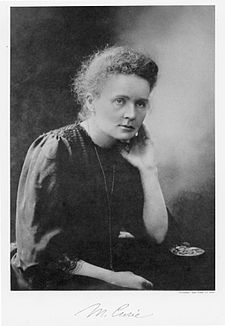
It was exciting to see the good news that Randy W. Schekman, a member of NCSE, was awarded a Nobel Prize for Physiology or Medicine in 2013. But it wasn’t unprecedented, of course. A number of Nobel laureates have been members of NCSE over the years, including the late Francis Crick and the late Hans Bethe, and Alfred G. Gilman—who was a highly effective voice for evolution during the perennial struggles over evolution in textbooks in Texas back in 2003—is a member of NCSE’s Advisory Council.
And even outside the context of NCSE, Nobelists have often been at the ramparts defending the teaching of evolution. Zack Kopplin, the young activist who’s been working so assiduously to arrange for a repeal of the so-called Louisiana Science Education Act, enjoys the support of no fewer than seventy-eight Nobel laureate scientists—composing, as he noted in 2012, “40% of all living Nobel laureate scientists in physics, chemistry, or physiology or medicine.”
Similarly, in 2005, a group of thirty-eight Nobel laureates headed by Nobel Peace Prize recipient Elie Wiesel took the Kansas state board of education to task for its attempts to compromise the place of evolution in the state science standards. In a letter to the board, the Nobelists described evolution as “the foundation of modern biology”; “intelligent design” they decried as “fundamentally unscientific because its central conclusion is based on belief in the intervention of a supernatural agent.”
Or consider the amicus brief submitted by no fewer than seventy-two Nobel laureates in Edwards v. Aguillard, the 1987 case challenging the constitutionality of teaching creationism in Louisiana’s public schools. “The Act grossly misrepresents the status of evolutionary theory within the universe of scientific theories,” the laureates explained, adding, “The evolutionary history of organisms has been as extensively tested and as thoroughly corroborated as any biological concept.”
Reading Jeffrey P. Moran’s American Genesis (2012) today, I was therefore unsurprised, but pleased, to read, “In France, even Marie Curie signed a letter of surprise and dismay at the ‘oppression of science and thought in America’” represented by the Scopes trial. Moran cites a July 22, 1925, article in the New York World News; NCSE’s archivist Charles Hargrove wasn’t able to find the article on-line, but he found a similar article in the Oakland Tribune published on the preceding day.
The Tribune article (with a byline of Constantine Brown and a copyright credit to the Chicago Daily News Company) is dated from Paris on July 21, 1925, and indicates that Marie Curie, as well as Paul Appell, the president of the University of Paris, Jacques-Arsène D’Arsouval of the College of France, and twelve other prominent French scientists, “issued today a protest against the indictment of John T. Scopes, in a letter addressed to the newspaper Quotidien” (which I haven’t been able to locate).
We protest vehemently against violation of freedom of thought as it is being tried now at Dayton, Tenn., ... and we believe that if many of the points in Darwin’s theory can still be the subject of discussion and appear doubtful, it is impossible for modern scientists to ignore them. They have contributed to the formation of contemporary scientific thought and the notions of evolution established are among the most important acquisitions of the Nineteenth century.
Among the forms of oppression, those which tend to limitation of the rights of thought are the most horrible and also useless. No political or religious organization has the right to impose such limitation and we protest with indignation against the Dayton lawsuit.
Curie, of course, is a twofer as far as Nobel Prizes are concerned, having shared the 1903 prize for physics with Pierre Curie and Henri Becquerel and having won the 1911 prize in chemistry. She was the first woman ever to win a Nobel Prize, the first person to win two, and the first (and still only) person to win two in two different scientific fields. (Frederick Sanger won two in chemistry; John Bardeen won two in physics; Linus Pauling won one in chemistry and also the Nobel Peace Prize. But who’s counting?)
And it’s hardly of any comfort to creationists that there is no Nobel Prize awarded to evolutionary biology, or even biology, as such. (Although the Royal Swedish Academy confers the Crafoord Prize for biosciences, I should point out.) For in 2005, James McCarter, a scientist who runs a biotech company in Missouri, wrote,
Reviewing the last 50 years of Nobel Prizes in medicine or physiology, I asked, “Is training in evolutionary biology necessary for a thorough understanding of the award-winning discoveries and work resulting from each breakthrough?” By my criteria, understanding of evolution is necessary in 47 of 50 cases. From vaccines, viral cancer genes, and nerve cell communication to drug trials, and genes controlling cholesterol and heart disease, evolutionary insights are crucial.
Nothing in the last eight years of Nobel Prizes in Physiology or Medicine casts doubt on McCarter’s judgment, either. Take, for example, Bruce Beutler, who shared the 2011 prize with Jules A. Hoffmann and Ralph M. Steinman for their discoveries in immunology. In his Nobel Lecture, Beutler expressed (PDF, p. 2) his gratitude to his father,
who always challenged me, counseled me, and helped to prepare me for whatever I wanted to do. He encouraged my love of science from the time I was a small child. From him, I learned to work in the lab, to isolate and analyze proteins, to think in evolutionary terms, and to evaluate experimental results. (emphasis added)
Does teaching students to think in evolutionary terms, or even just to have a rudimentary knowledge of the basics of evolution, guarantee them a Nobel Prize? Obviously not: the race is not always to the swift, nor the battle to the strong. But, as Damon Runyon is supposed to have added, that’s the way to bet.

